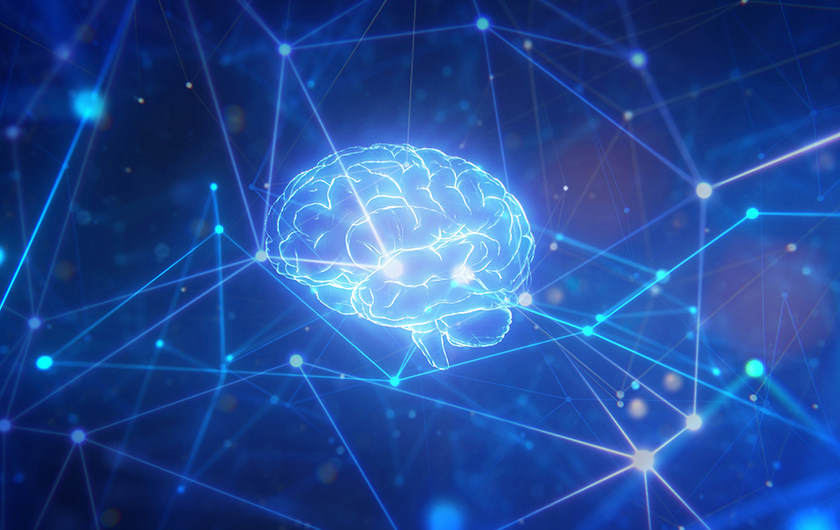
Fujitsu is proud to be leading a project in collaboration with our partners GE Healthcare, Macquarie University & Macquarie Medical Imaging to produce an artificial intelligence software to assist radiologists with the detection and monitoring of brain aneurysms. This project’s algorithms will be applied on medical brain scans to help save valuable time for clinicians, make diagnoses safer and more accurate, and hopefully save lives.
For a summary of our initiative, watch our video on YouTube below.
So what is a brain aneurysm and how common are they?
Brain aneurysms (aka cerebral aneurysms) are weak spots on an artery wall in the brain that bulge and ‘balloon’ outwards, filling with blood. At least 2% of the world’s population have a brain aneurysm,* and the consequences of a ruptured brain aneurysm are severe and life threatening.
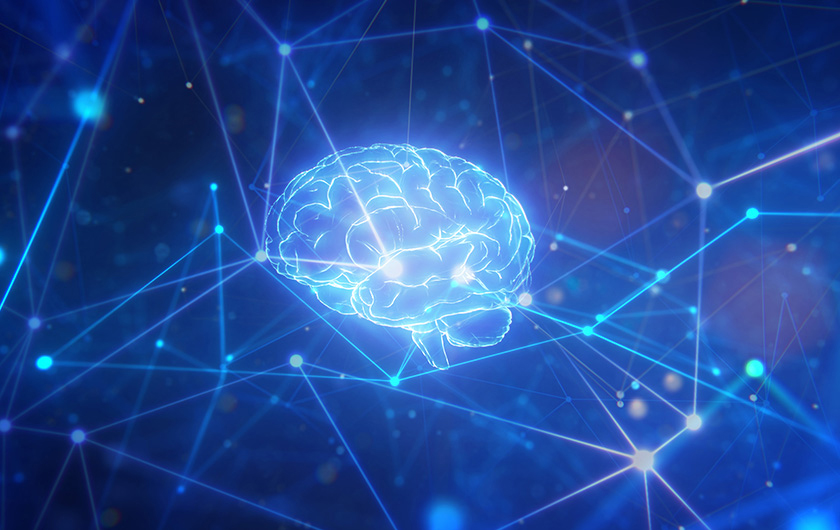
Diagnosis and Treatment – how can our Narrow AI initiative assist medical practitioners in the field?
The presence of a brain aneurysm most often goes unnoticed until it is detected too late – when the person is already in the hospital suffering a haemorrhagic stroke. If detected early, this is often by chance via scanning for another brain condition.
Early and accurate diagnosis of brain aneurysms are critical for ensuring the safety of a patient. Brain aneurysms need to be monitored over time to assess changes in their size and shape, so risky aneurysms can be identified. This enables preventative measures to be taken before the aneurysm ruptures.
Computed Topography (CT) scans are the typical choice for brain aneurysm detection, however they can be challenging to review, as they require more thorough examination compared to typical chest or skeletal X-rays. Unfortunately, trained senior neuro-radiologists are an expensive resource and are not available equally around the world.
This means certain places such as rural areas, hospitals and many smaller radiology practices are unable to review scans adequately. There is an increasing number of scans being ordered every year, and coupled with increasing sophistication of CT scan technology, the workload and subsequent risk, is extremely high for neuro-radiologists. The cost of error or misdiagnosis in the field of medicine can be life-altering for patients.
This project really leverages the large amount of R&D that Fujitsu does globally. The development of Fujitsu’s artificial intelligence software plans to include the following features:
- Alerts for radiologists to areas of interest on CT scans for possible brain aneurysm locations
- Tracking changes in aneurysm size and shape over time to provide consistent long-term monitoring
- Prediction of aneurysm risk of rupture, using fluid modelling through nearby vessels
Fujitsu and our leading partners
Fujitsu is proud to announce that the Federal Government has seen the value of this initiative helping to bring this project to a reality. This Project has received a $2 million-dollar research grant from the Department of Industry, Innovation and Science, Co-operative Research Centres Projects Scheme.
As the Lead Partner of the project, Fujitsu will be leading and co-ordinating the project, with primary responsibility for the development of the core artificial intelligence algorithm that detects aneurysms on CT scans and monitors long term size and shape growth. Fujitsu will be leveraging software engineering expertise and image processing expertise from Fujitsu Japan to deliver this, whilst considering inputs from all other parties in fine tuning, testing and validation of the algorithm and ensuring compatibility with existing GE software.
GE Healthcare will contribute through its leading medical imaging technology and global commercial expertise, and their existing CT stroke software will be used to annotate a large dataset of aneurysm images obtained from Macquarie Medical Imaging (MMI), who also provide radiology expertise and a first trial site. Macquarie University will use this annotated data to develop novel software to assess the risk of rupture of aneurysms, as well as managing the image database. Both Macquarie University and MMI will be providing clinical expertise for development and testing of the artificial intelligence.
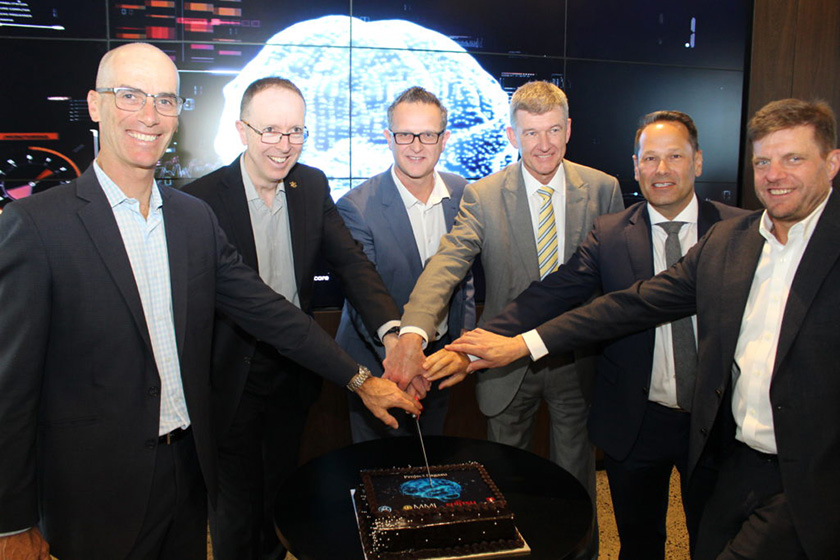
All parties celebrate the launch of our Narrow AI initiative at the Fujitsu Australia Headquarters in Macquarie Park, Sydney.
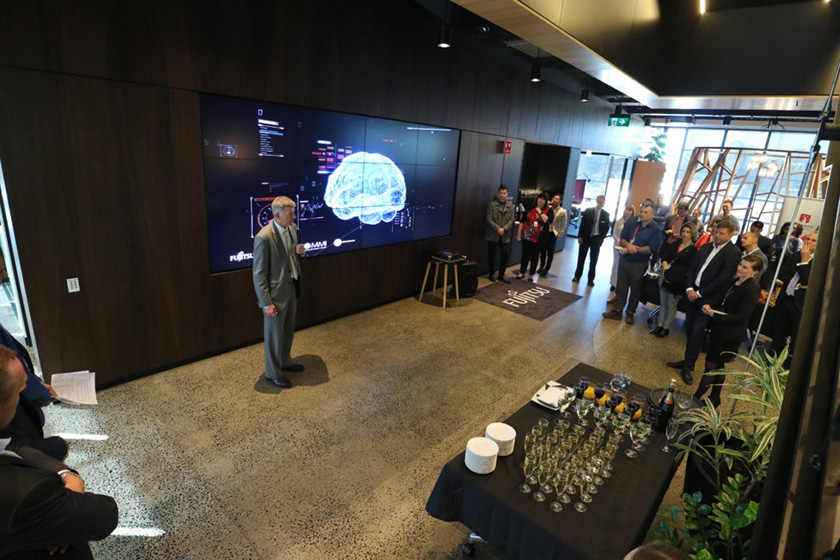
Professor Patrick McNeil, Deputy Vice-Chancellor Medicine and Health, Macquarie University, addresses the audience at the launch event in Sydney.
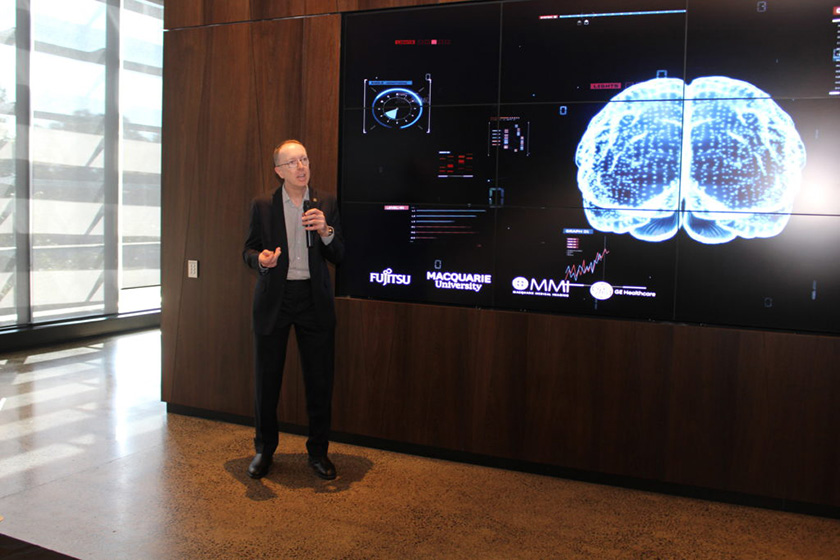
Professor John Magnussen, Diagnostic and Intervention Radiologist at Macquarie Medical Imaging, Professor of Radiology at Macquarie University.
Through this partnership and the future success of this project, radiologists will be better equipped to make early, potentially life-saving diagnosis, and improve the quality of life for patients with aneurysms around the world.
To learn more about digital co-creation and innovation at Fujitsu, visit our microsite here.










